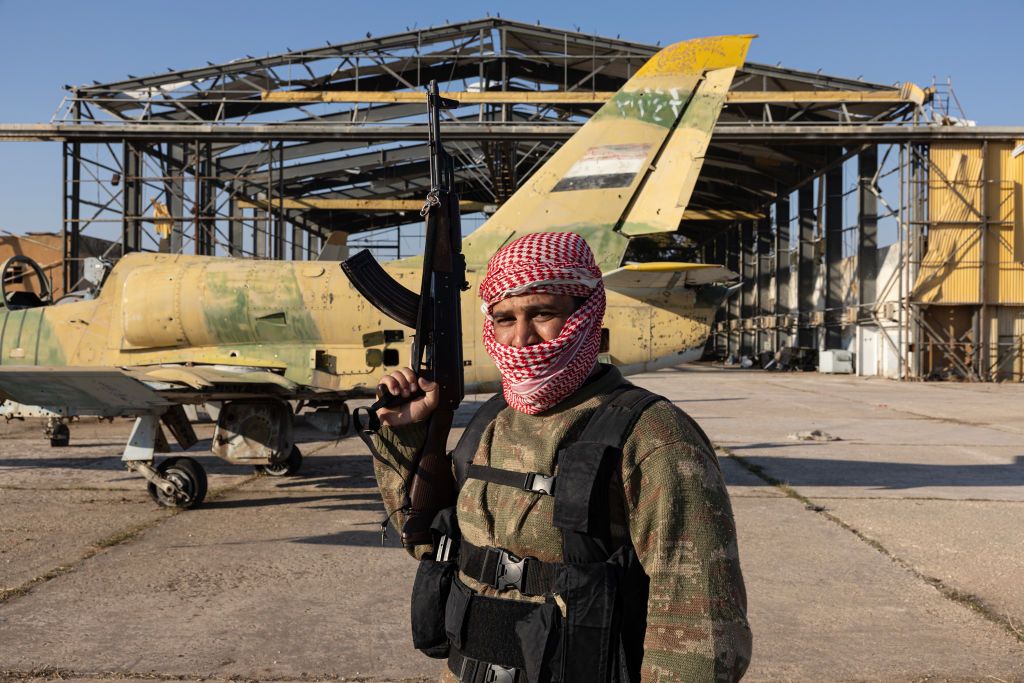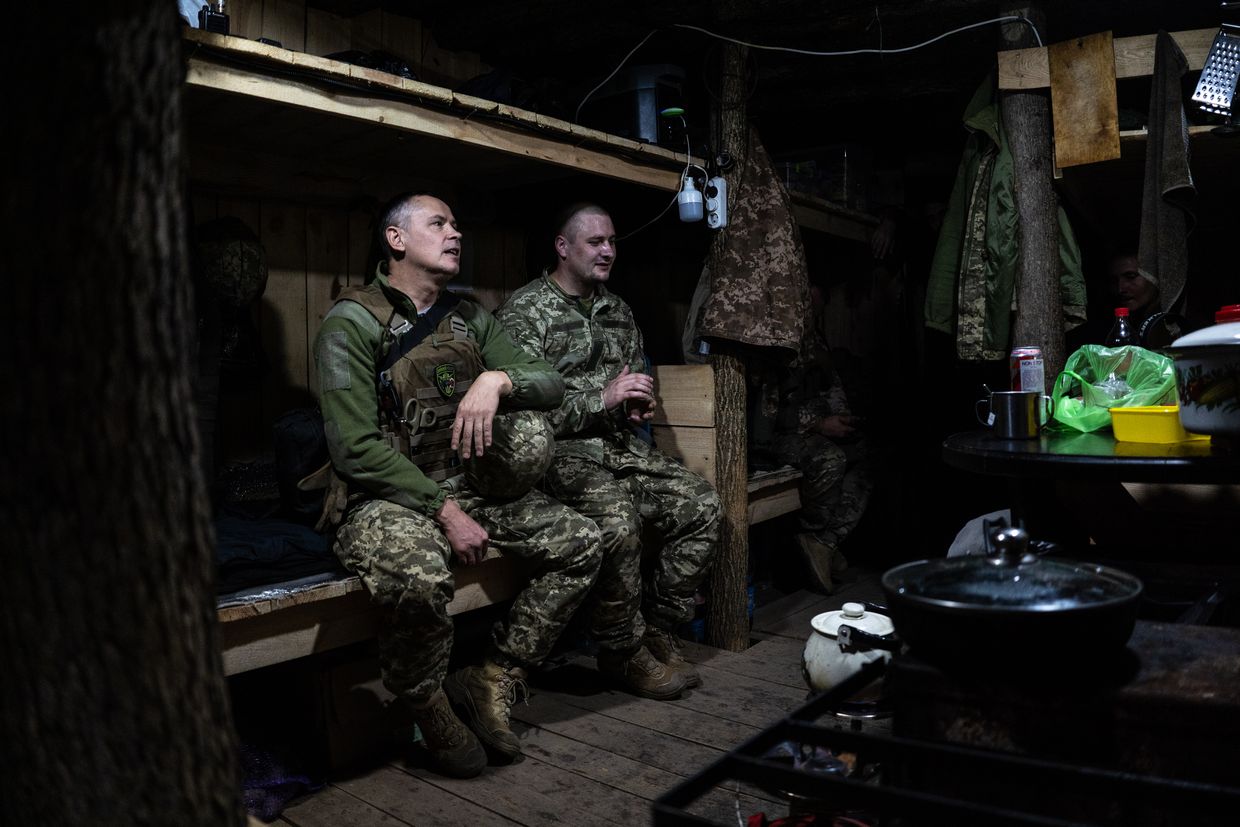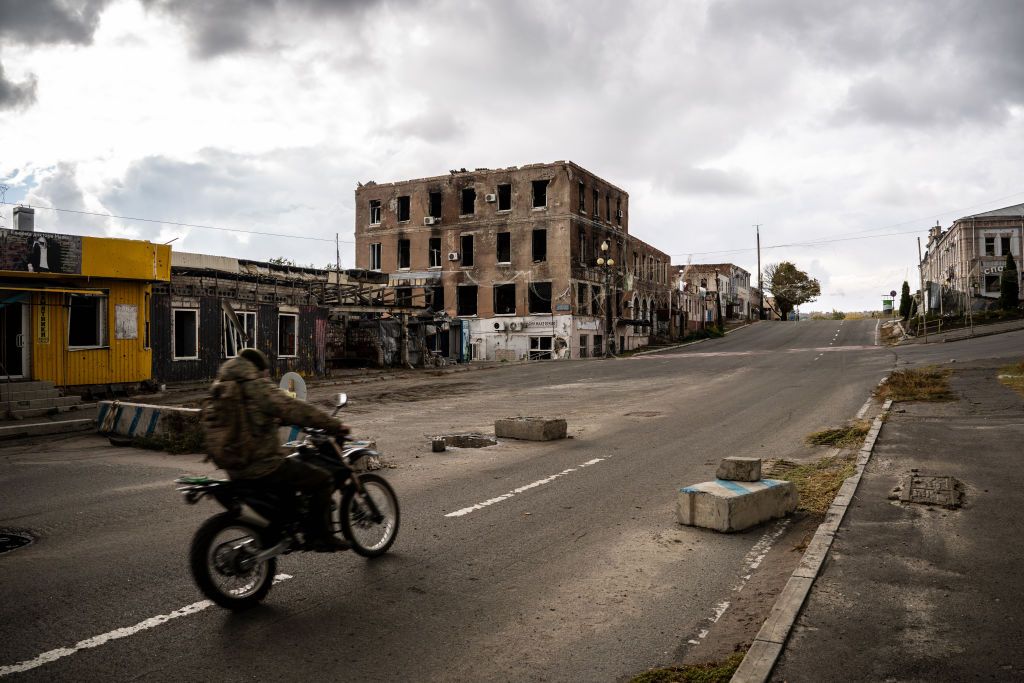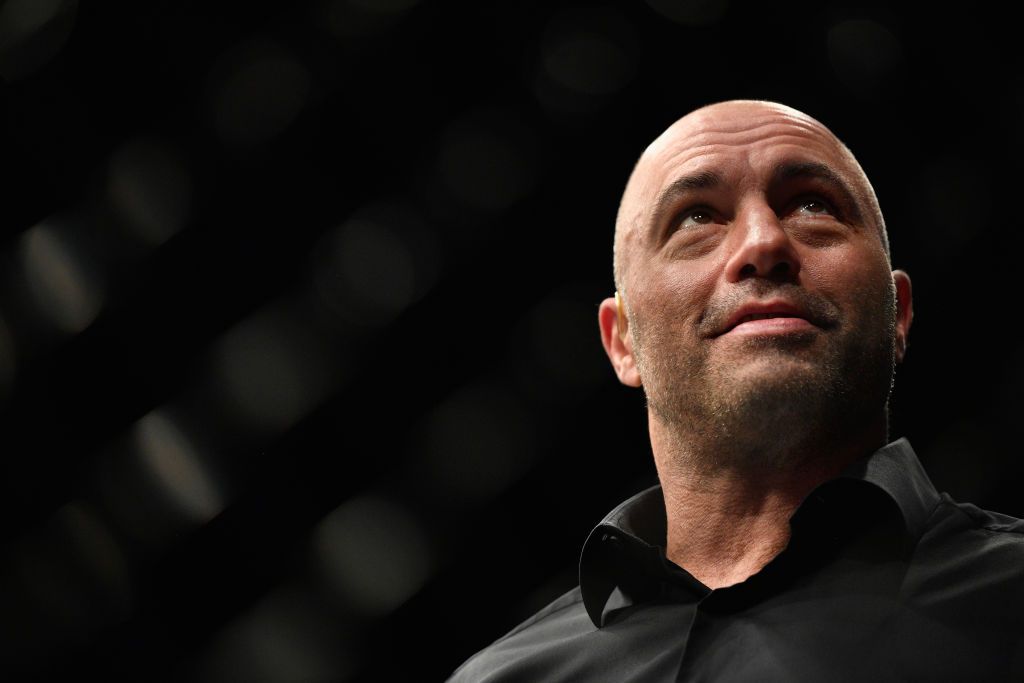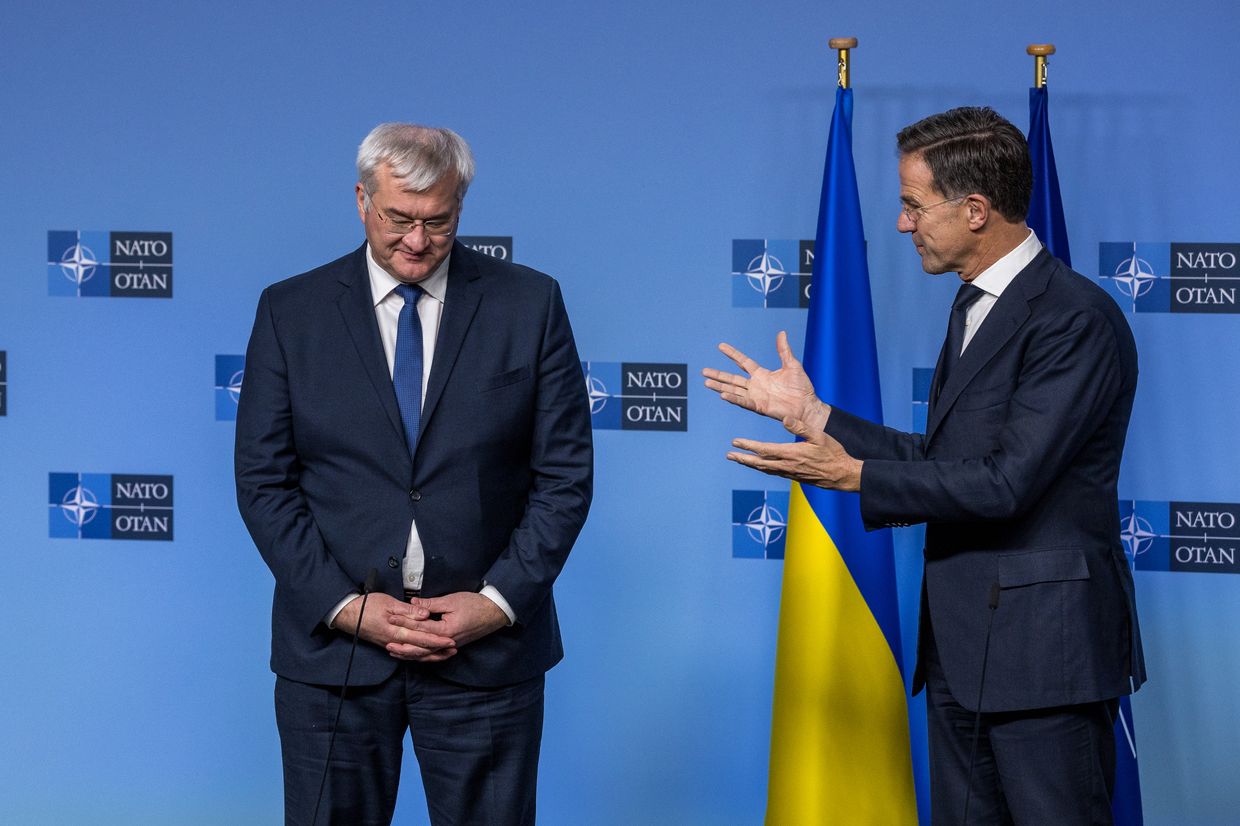
As NATO ministers meet, some members continue to oppose membership invitation for Ukraine
An undisclosed NATO source told the Ukrainian Suspilne outlet that the U.S. and Germany continue to oppose inviting Ukraine at the moment.

An undisclosed NATO source told the Ukrainian Suspilne outlet that the U.S. and Germany continue to oppose inviting Ukraine at the moment.
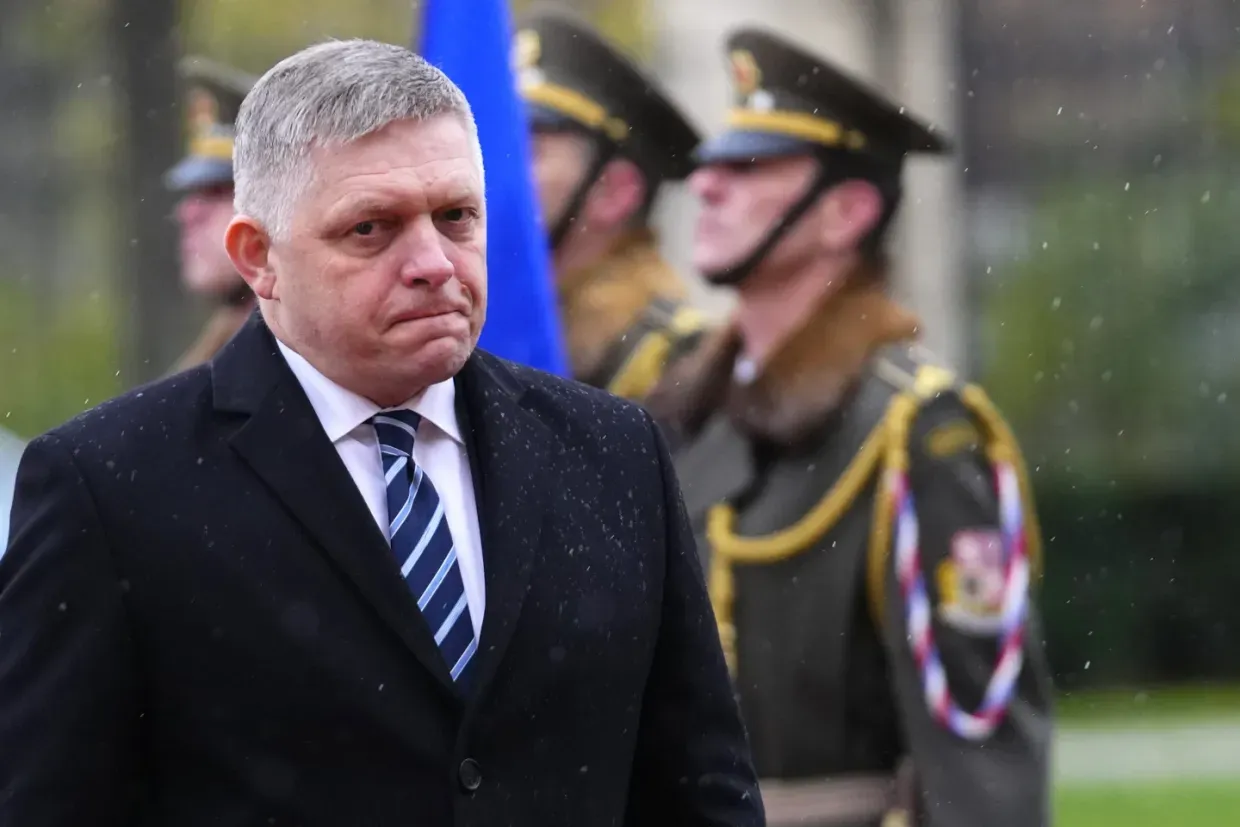
Slovak Prime Minister Robert Fico said he called European Commission chief Ursula von der Leyen to convey to her his disagreement. The Slovak prime minister has repeatedly criticized the EU's support for Ukraine.
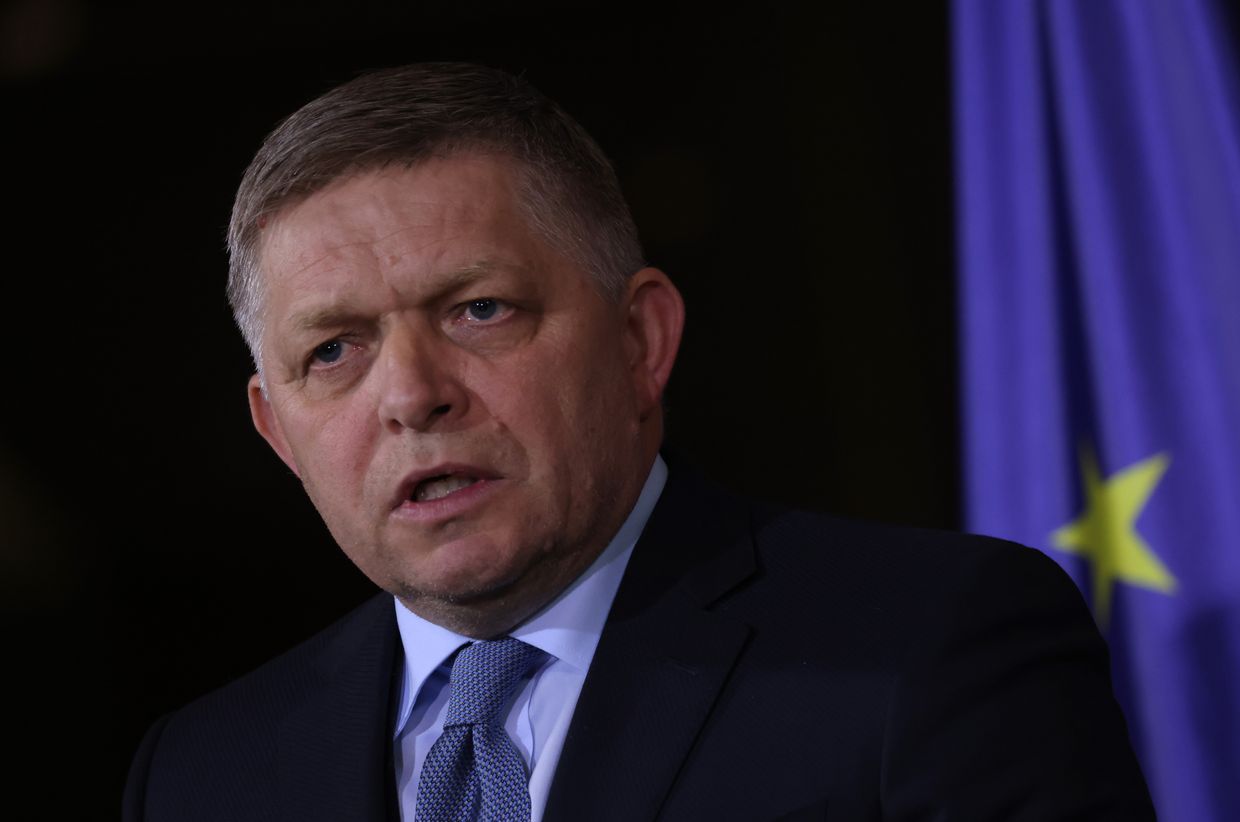
Slovakia's Ukraine-skeptic Prime Minister Robert Fico accepted Russian President Vladimir Putin's invitation to attend the Victory Day celebrations in Moscow next May, Fico announced on Nov. 27.

Michal Koudelka, the director of the Czech Security Information Service, said on Nov. 18 that Russia was behind a flurry of bomb threats made against schools in Czechia and Slovakia in recent months.
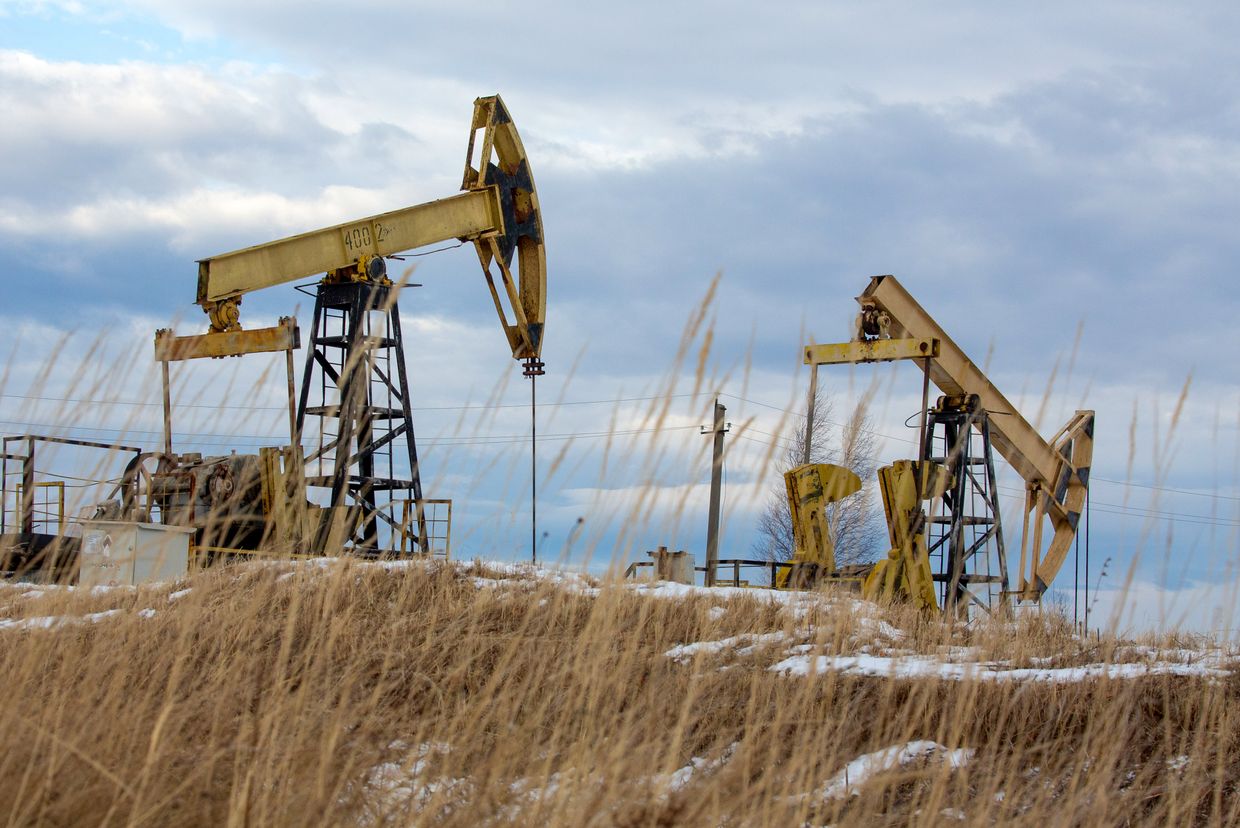
Slovensky plynarensky priemysel (SPP) may also consider a longer-term agreement, as it is also preparing to cut off Russian gas supplies through Ukraine.
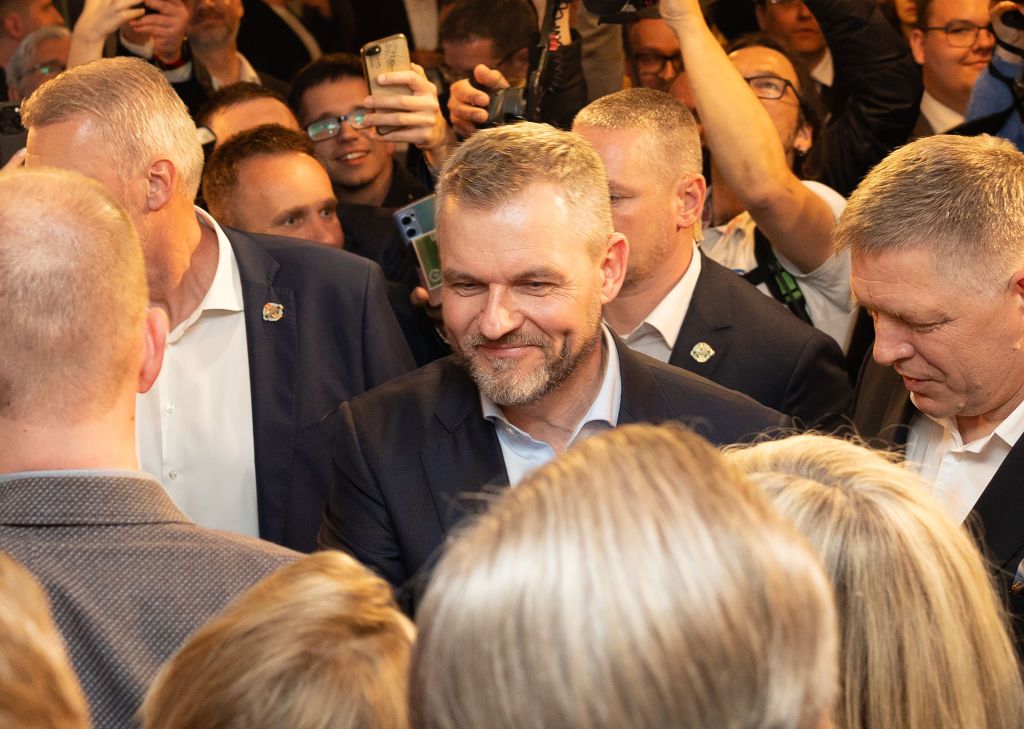
Slovak President Peter Pellegrini recently rejected all four requests from Slovak citizens wishing to join Ukraine's armed forces, Slovak media source TASR reported on Nov. 3.
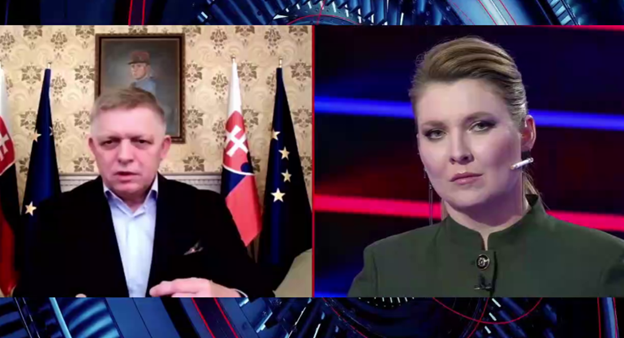
Talking to the propagandist sanctioned by Western countries, the prime minister of a NATO and EU member country discussed several topics, including the Nord Stream pipeline explosions and the supposed Western fatigue over the support of Ukraine.
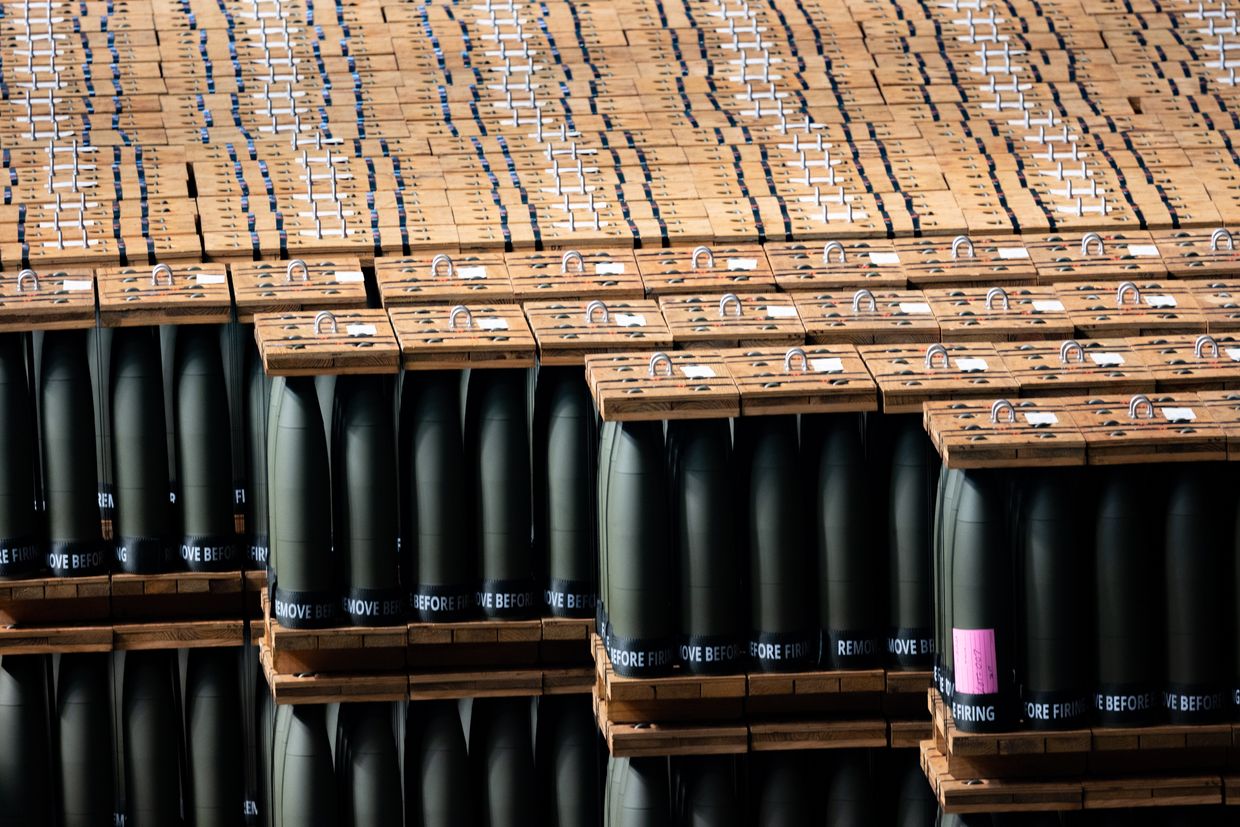
The fire broke out at 1:30 p.m. local time in a hydraulic press used for the three-dimensional molding of steel shell casings.
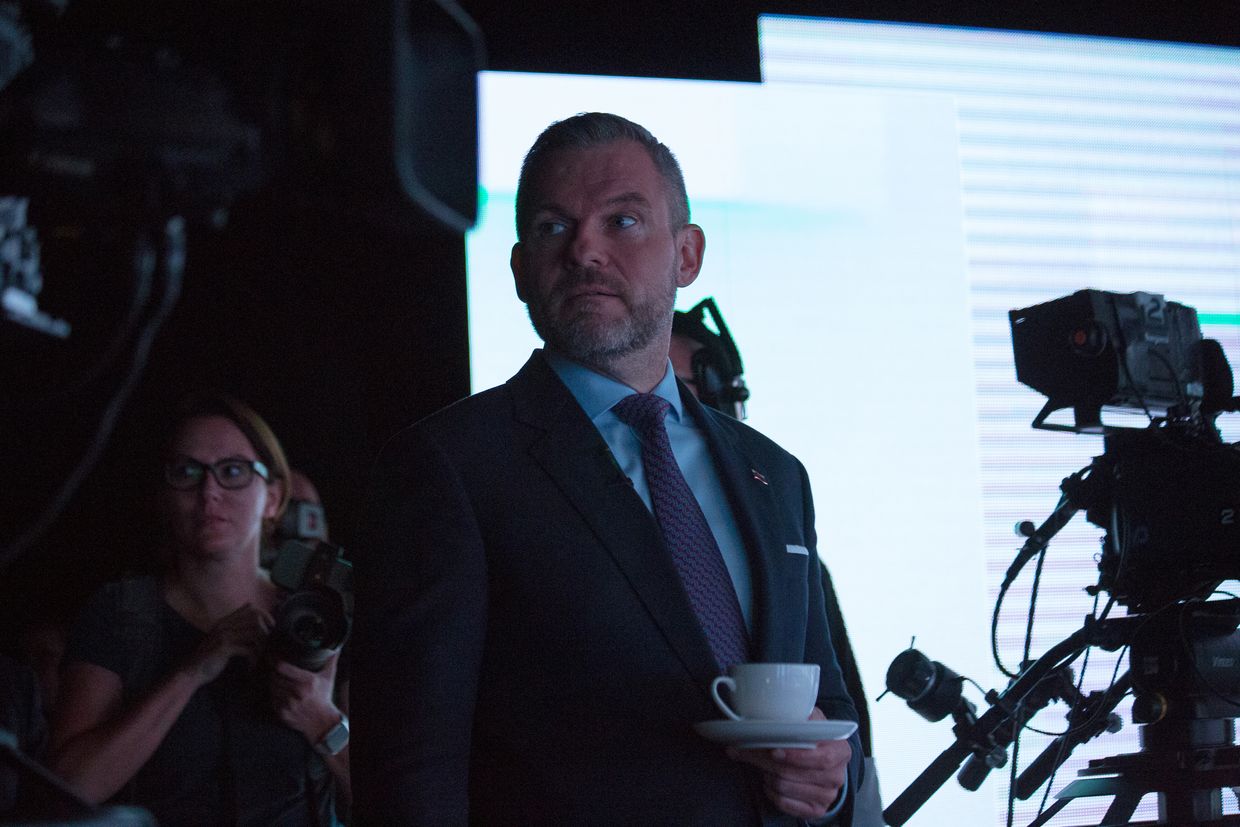
"We agreed with the Chancellor that today the issue of Ukraine's accession is not on the table, and it cannot come to the table," Pellegrini said.
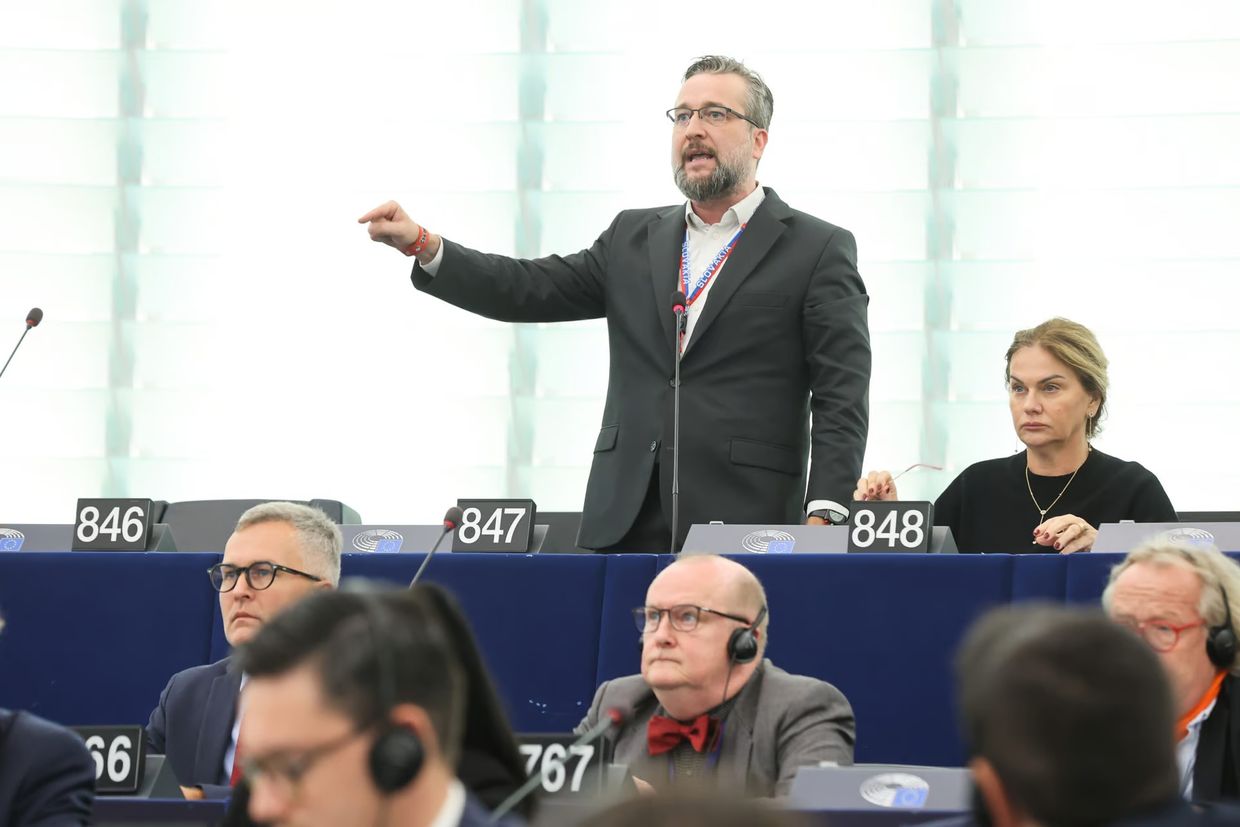
Lubos Blaha, a senior lawmaker from Slovak Prime Minister Robert Fico's pro-Russian Smer (Direction) party, visited Moscow on Oct. 12.
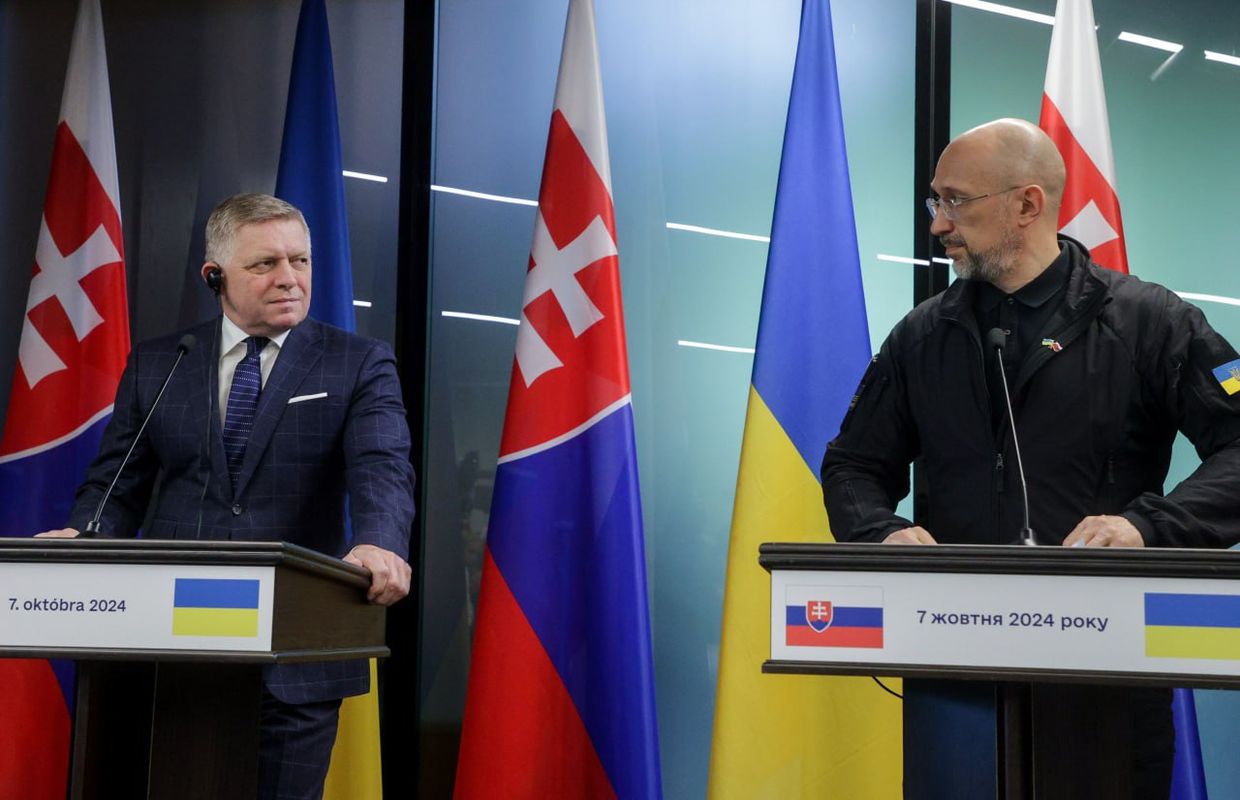
Slovakia will expand its military base in Michalovce, repairing Ukrainian military equipment instead of supplying new weapons to Ukraine, Slovak Foreign Minister Juraj Blanár said on Oct. 11.

The "Ammunition for Ukraine" campaign has raised almost 4.5 million euros ($4.9 million) for the Czech artillery initiative after the Slovak government refused to participate.

"As a result, we will expand our export and import capabilities and strengthen the energy security of both countries," Prime Minister Denys Shmyhal said.
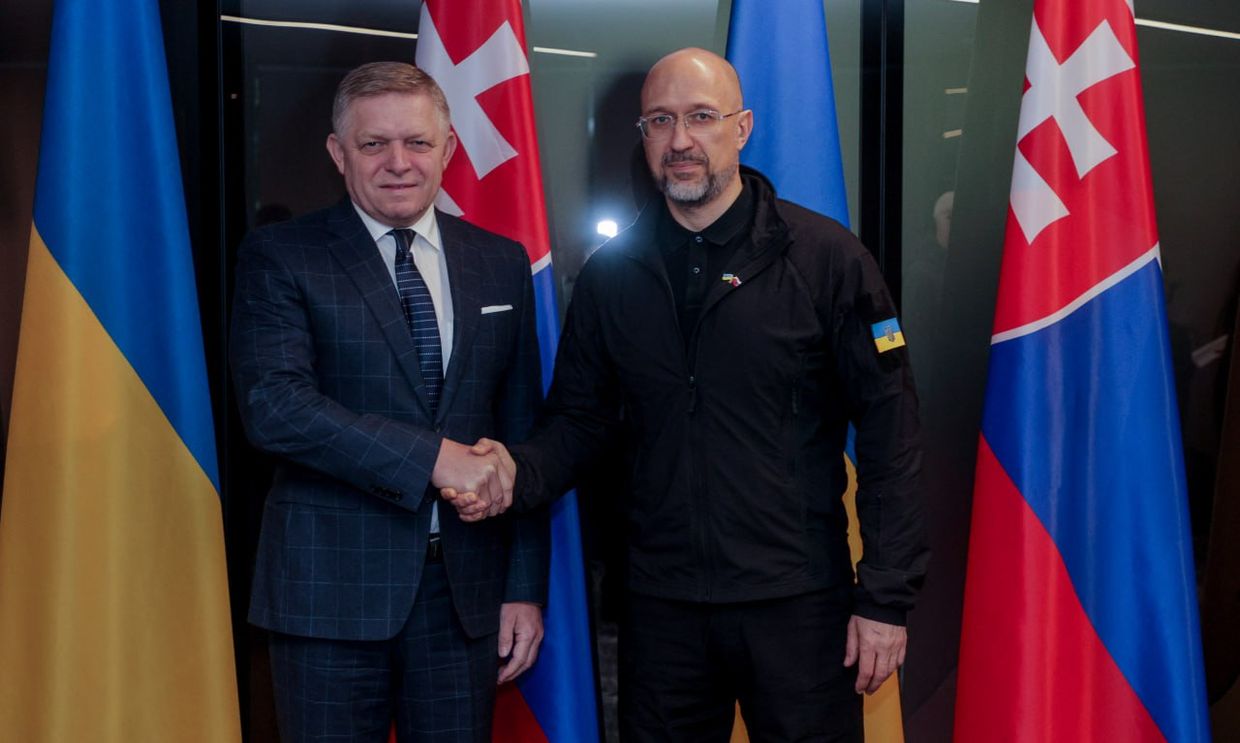
Slovak Prime Minister Robert Fico's visit to Ukraine comes shortly after his comments that as long as he is the prime minister, he will block Kyiv's entry into NATO.
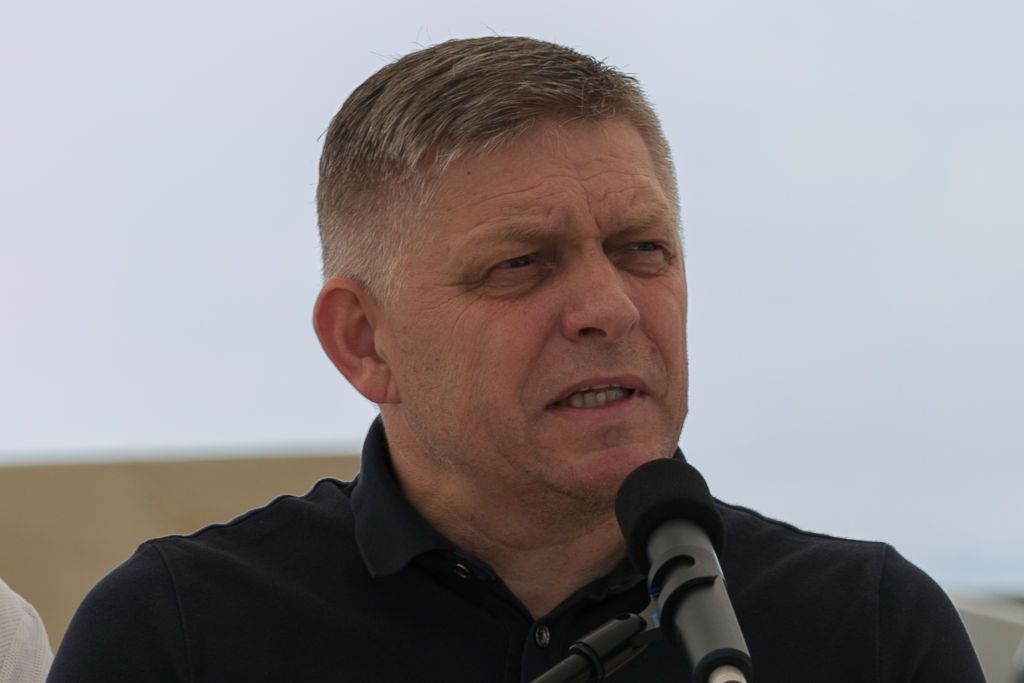
Slovak Prime Minister Robert Fico said he plans to resume "economic and standard relations" with Russia after the end of Moscow's war against Ukraine, the RTVS broadcaster reported on Oct. 3.
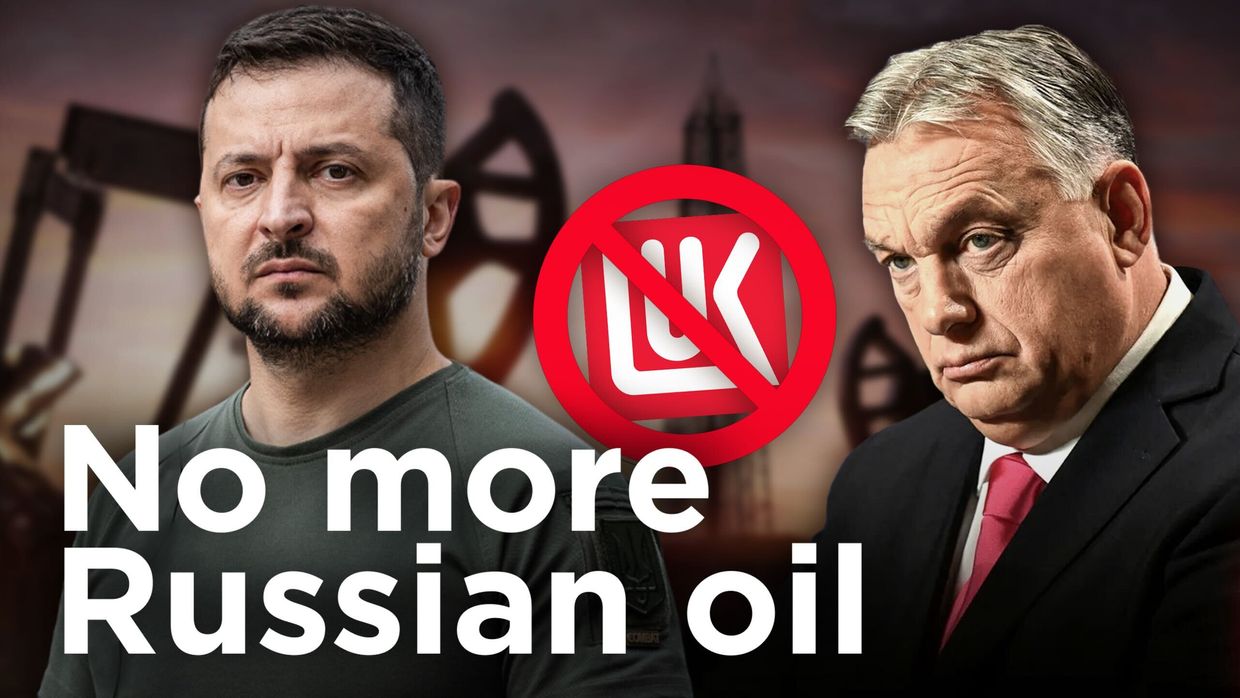
Ukraine placed sanctions on Russia’s Lukoil, blocking the company from transiting oil through Ukraine to Hungary and Slovakia. This move heightened tensions as Hungary accused Ukraine of endangering its energy independence.
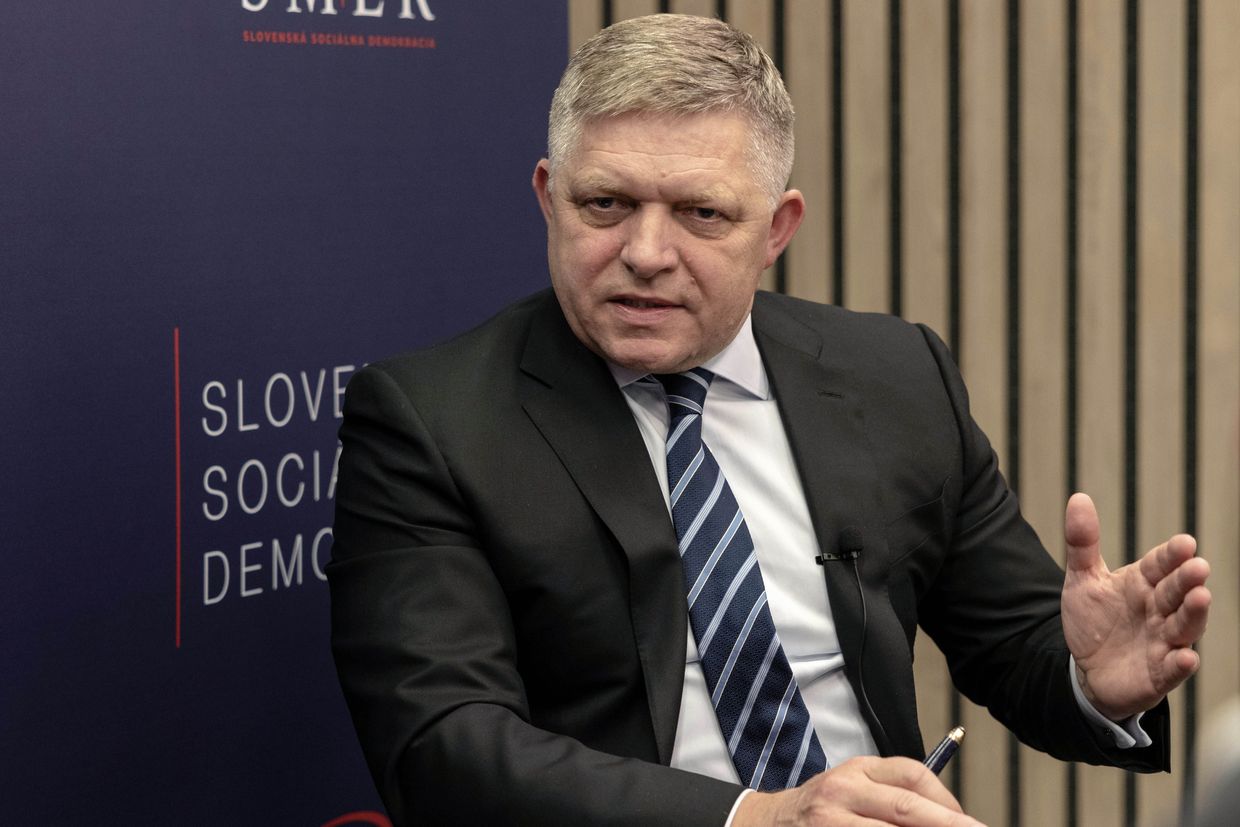
Ukraine's Foreign Ministry on Sept. 9 voiced its disappointment over claims made by Slovakia's pro-Russian prime minister, who urged Kyiv to address what he described as "fascist elements" within its military ranks.
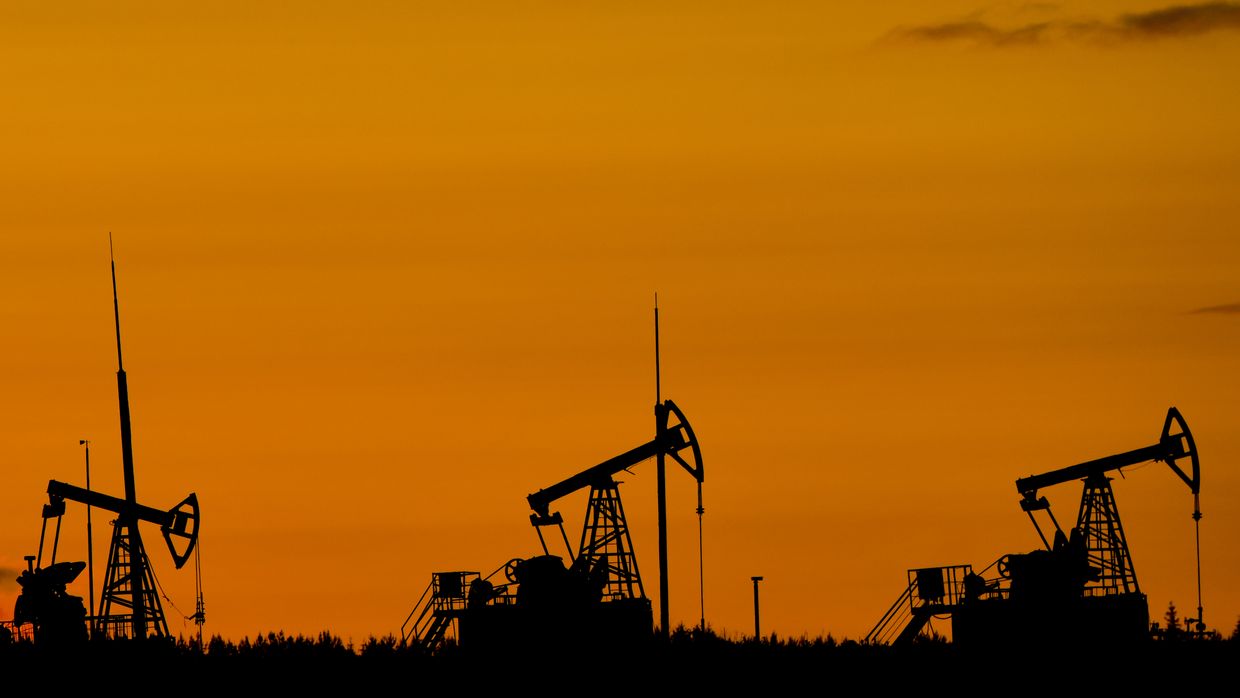
Russian crude exports to Hungary and Slovakia remained within norms in July as the sanctioned Lukoil oil was offset by supplies from another Russian company, Tatneft, Bloomberg reported on Aug. 27, citing an undisclosed source.
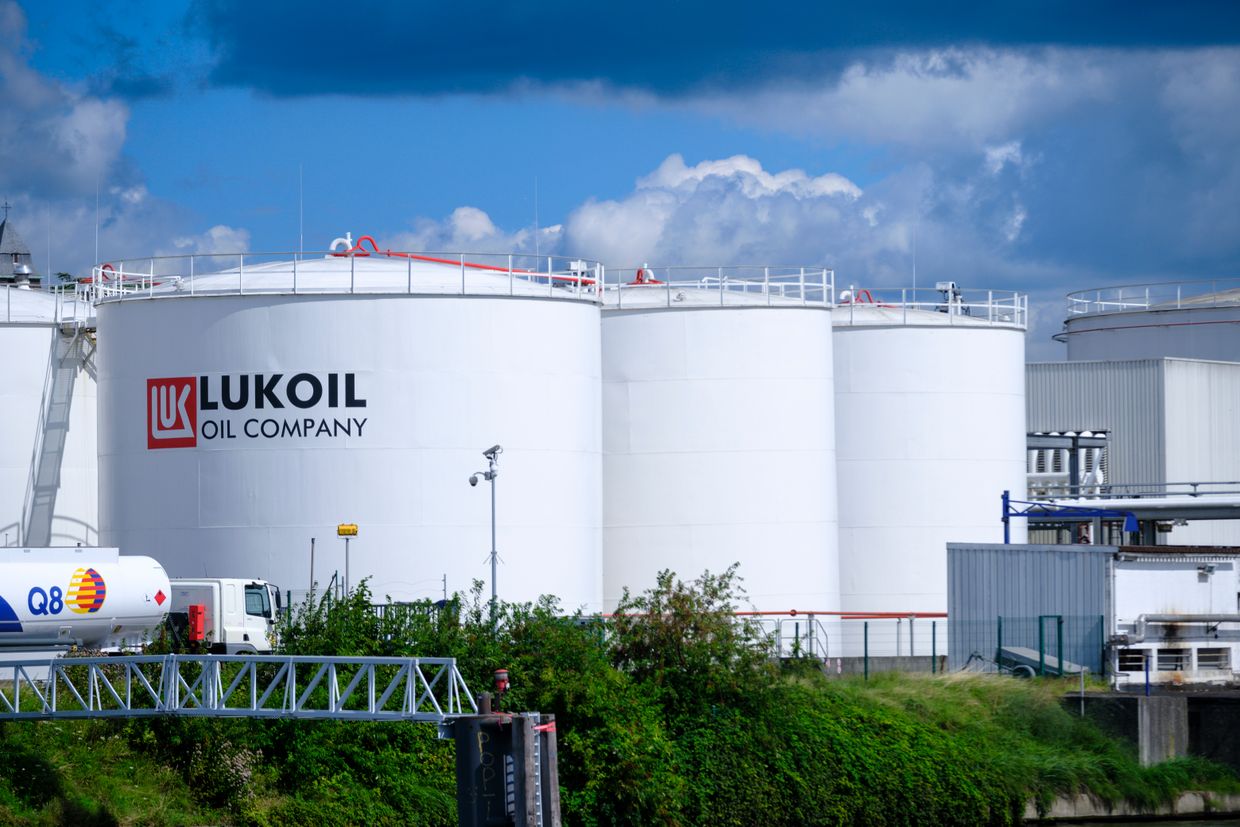
In June, Kyiv imposed sanctions blocking Lukoil, one of the largest oil companies in Russia, from transiting crude oil through the Druzhba pipeline running through Ukrainian territory.

The Hungarian government’s arguments against Ukraine’s sanctions on Russian oil company Lukoil are falling apart. Hungary accused Ukraine of “blackmail” and endangering its energy security after Ukrainian sanctions blocked Lukoil, Russia’s second-largest oil company, from transiting crude oil through the Druzhba pipeline in June. Hungary and Slovakia
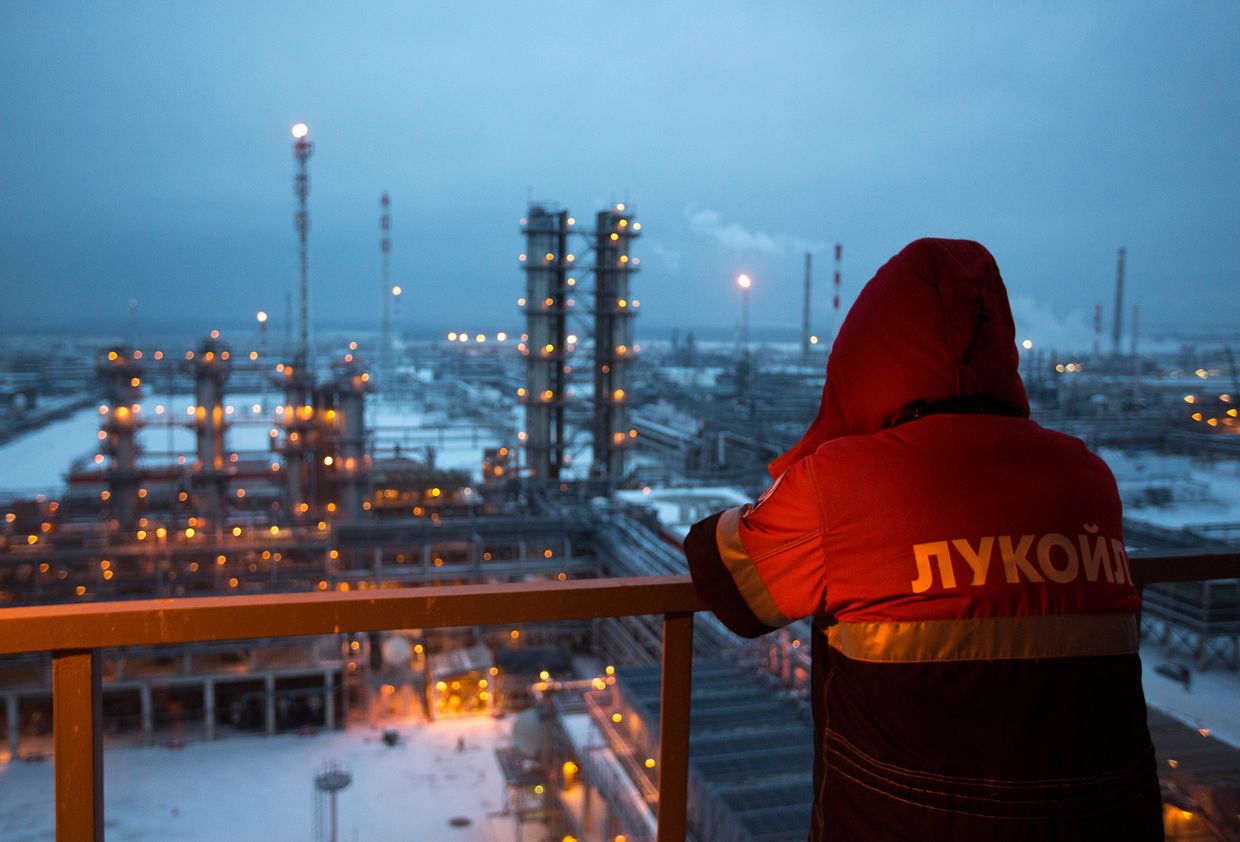
The sanctions imposed by Ukraine against Lukoil do not affect the current transit of oil through the Druzhba pipeline, as Lukoil is not the official owner of this oil, according to the European Commission.
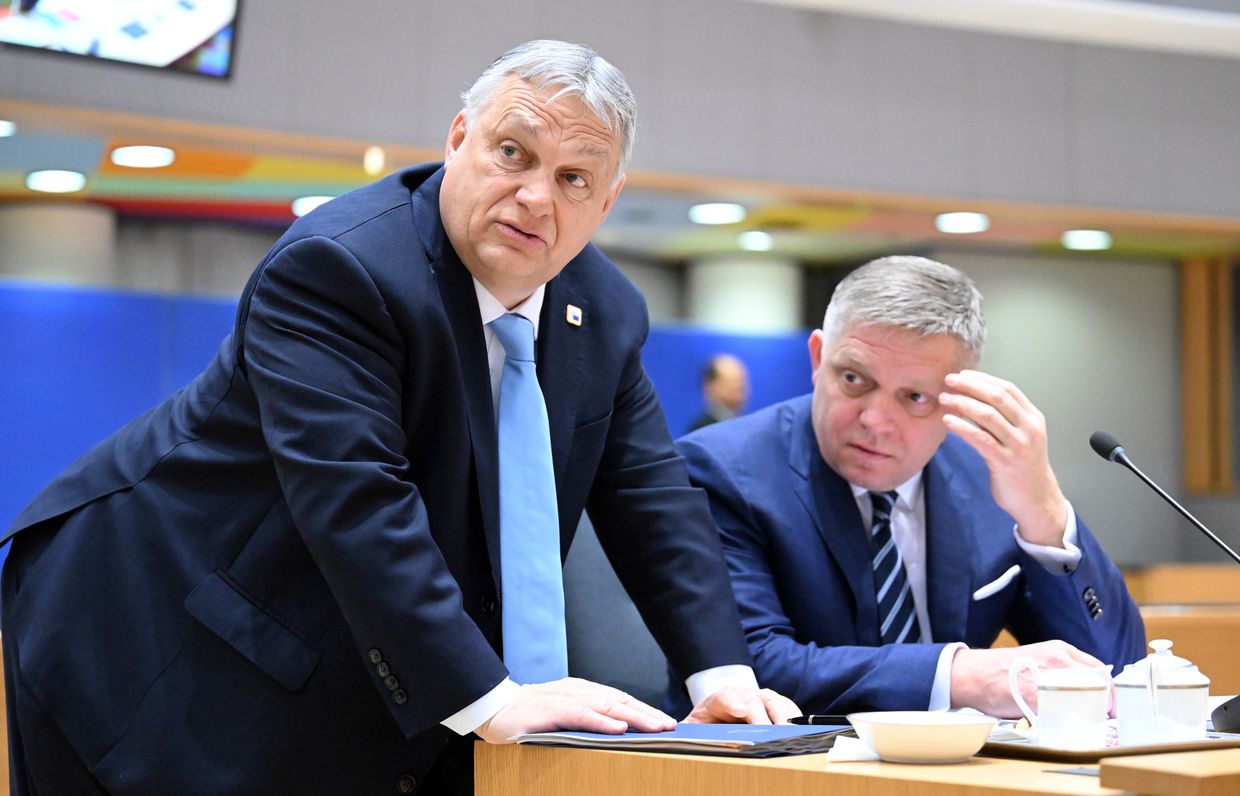
Hungary and Slovakia turned to the EU earlier this month as Ukrainian sanctions effectively halted the supplies from the Russian Lukoil company to the two Central European countries through the Druzhba pipeline.
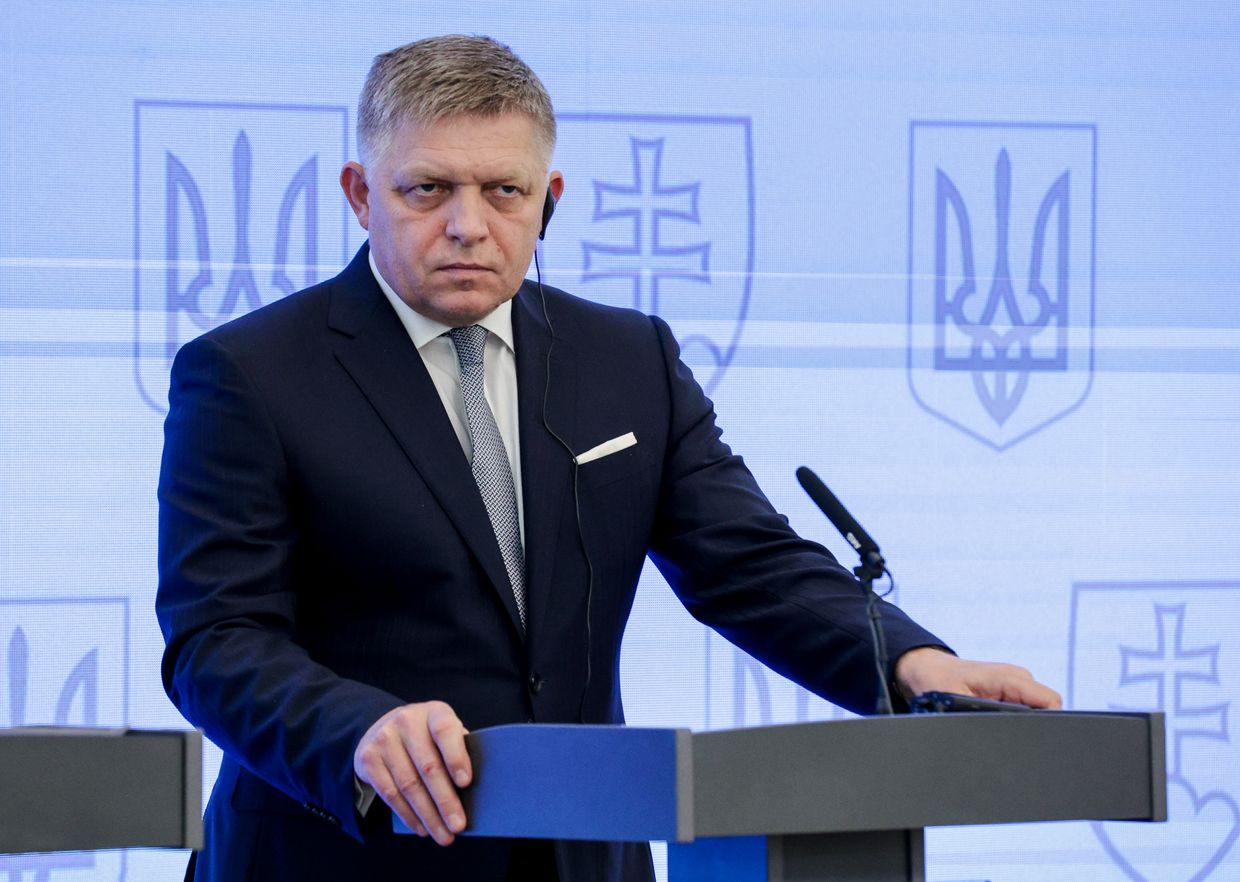
In June, Kyiv imposed sanctions blocking the transit of pipeline oil from Lukoil to Central Europe to cut off the Kremlin's source of income used to support its military.
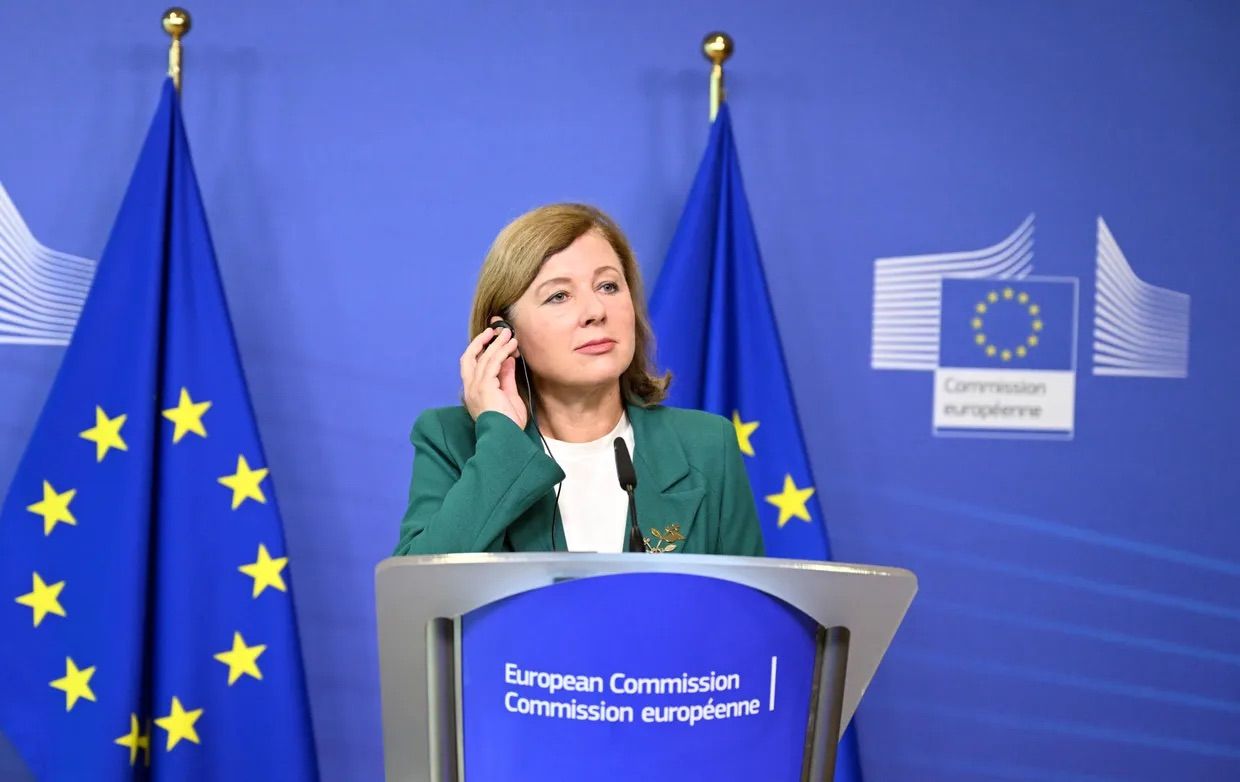
The European Commission warned Slovakia that it would take immediate legal action if the country adopted a controversial law restricting the activities of non-governmental organizations, Reuters reported on July 24.
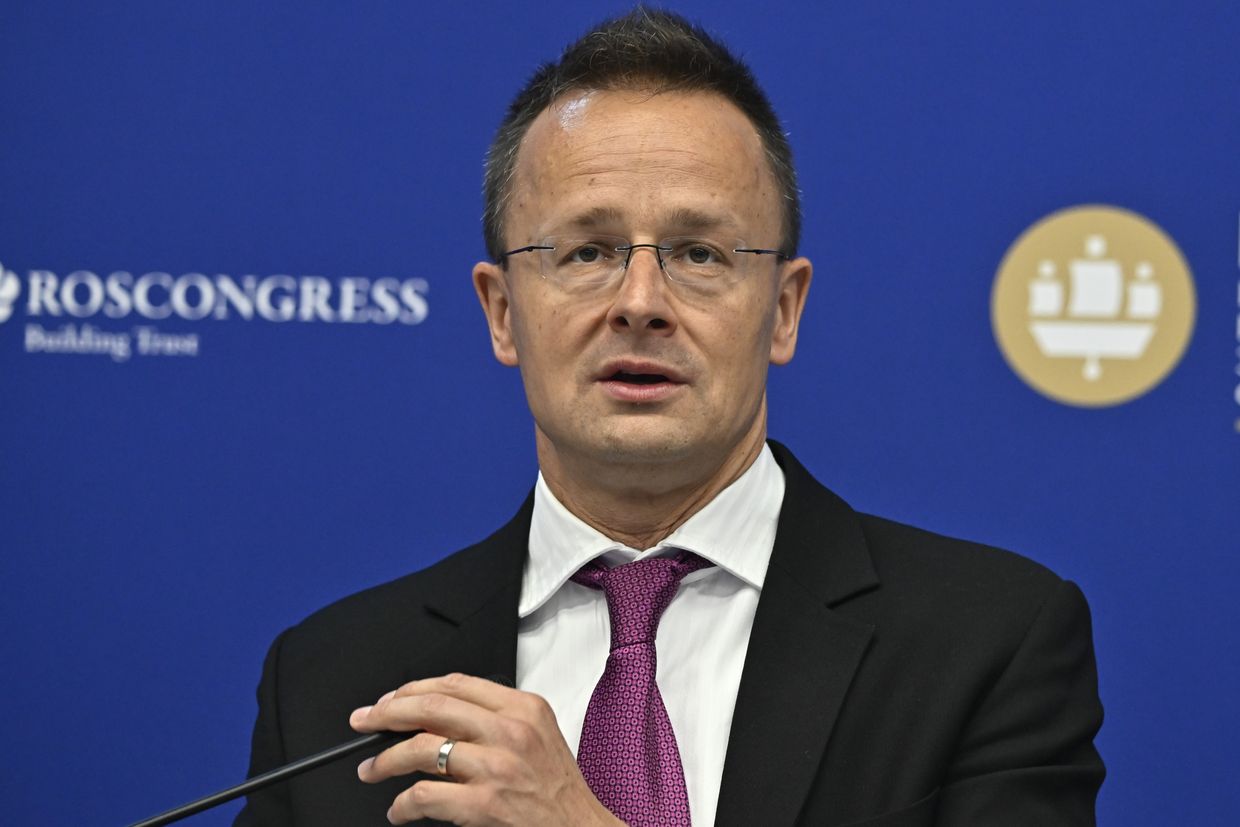
The Slovak leadership also threatened unspecified repercussions against Ukraine, reminding Slovakia's key role as an electricity supplier amid Ukraine's energy deficit.
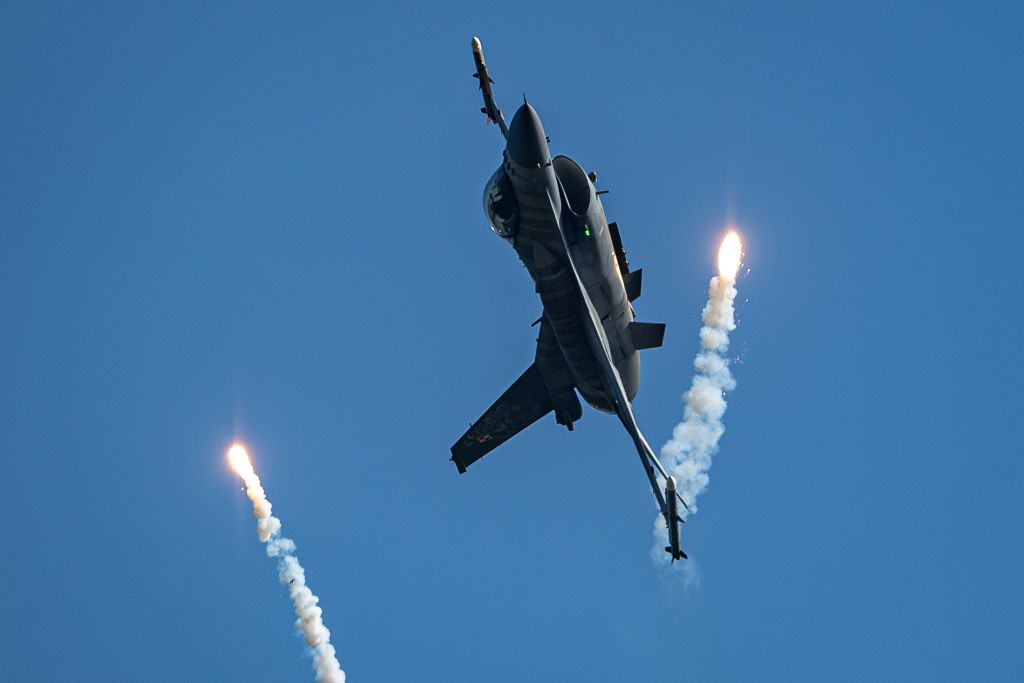
Another 12 F-16s will be in the country by the end of the year, Lockheed Martin, the company that manufactures the jets said in a press release.
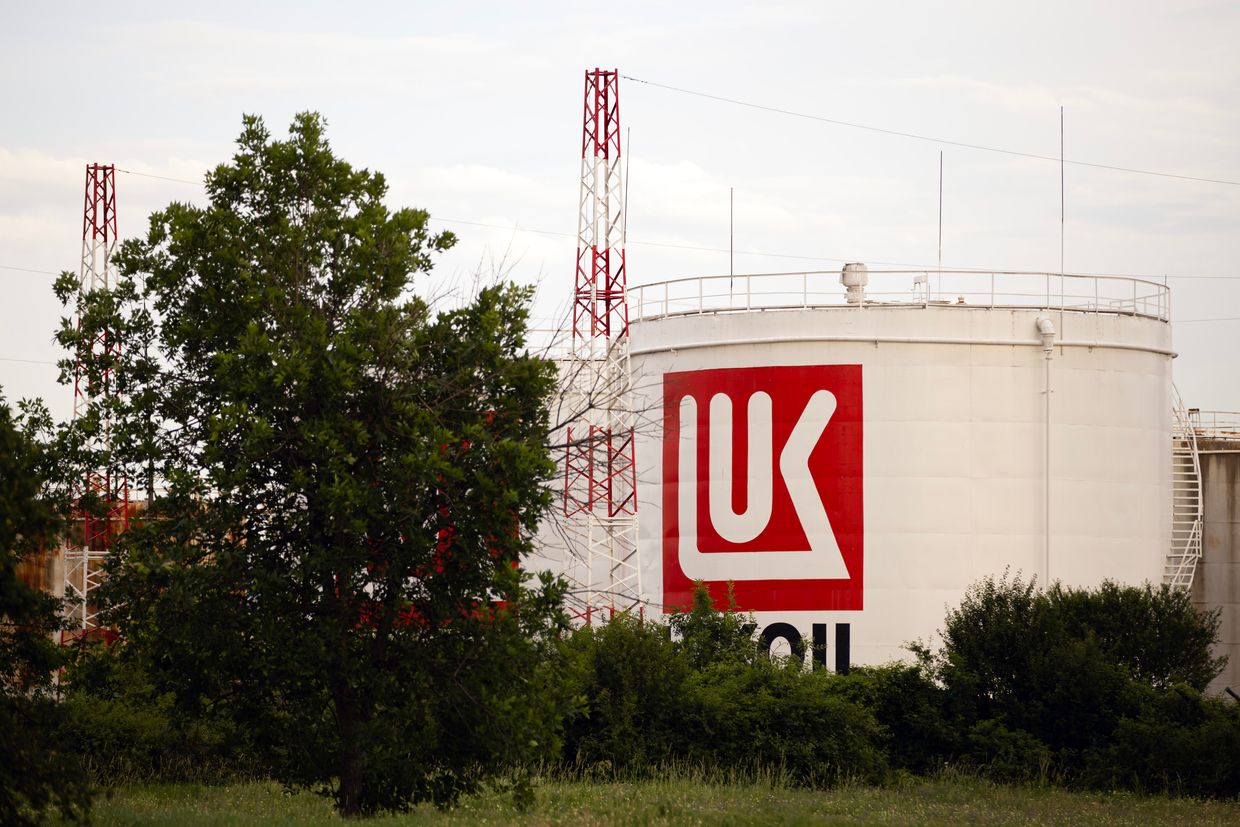
"The Commission has three days to execute our request, after which we will bring the issue to court," Hungarian Foreign Minister Peter Szijjarto said, calling Ukraine's decision "an unacceptable move," which "violates the EU-Ukraine Association Agreement."

"Slovakia doesn't intend to be a hostage to Ukrainian-Russian relations," Slovak Prime Minister Robert Fico reportedly said.

During his speech, Slovak Prime Minister Robert Fico criticized what he referred to as liberal and progressive political ideologies and expressed praise for Hungarian Prime Minister Viktor Orban.
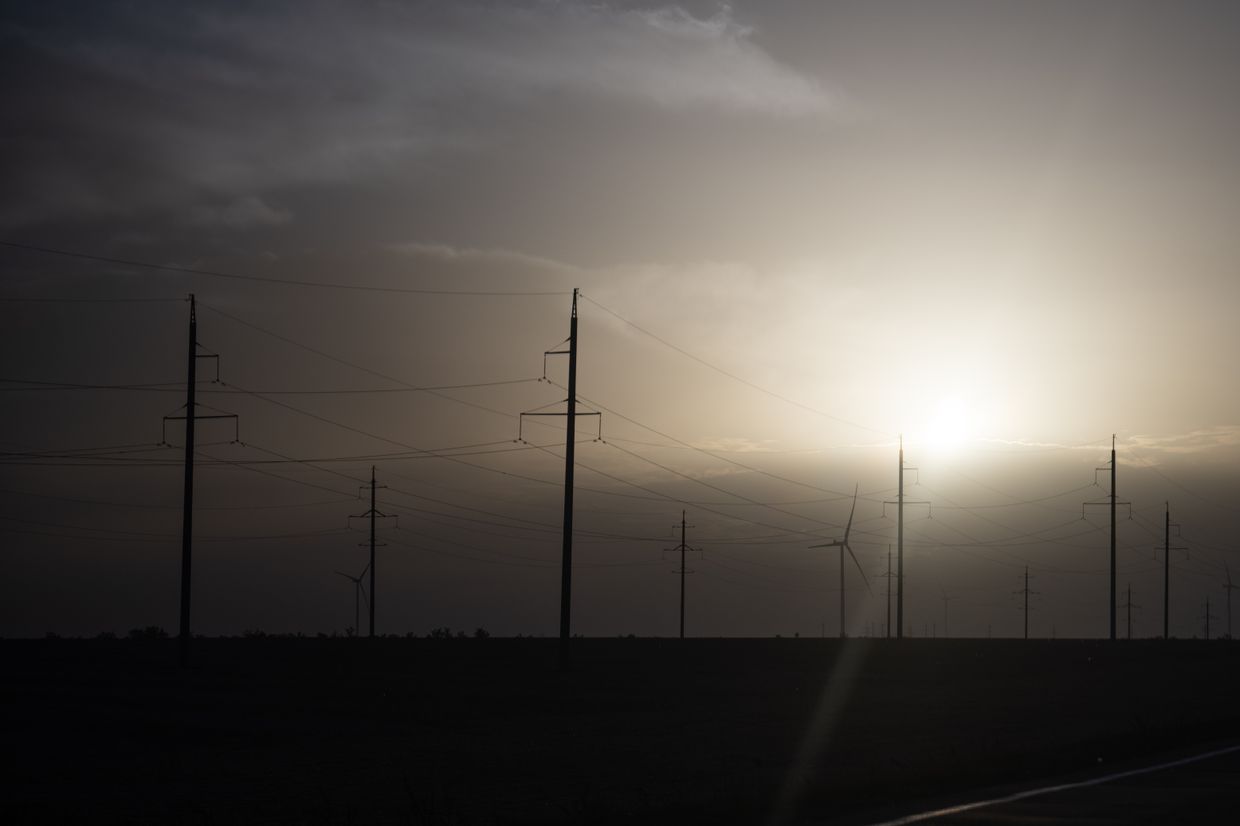
"Since the beginning of the war, we have already exported more than 40,000 megawatts of electricity to Ukraine, and we are going to increase supplies in autumn and winter, which will probably be crucial for Ukraine," Pellegrini said during a visit to Poland on Thursday.

Slovak Prime Minister Robert Fico last addressed the public in early June via a video posted on his Facebook page. Fico thanked doctors for their care and said he could return to work "in late June and early July."
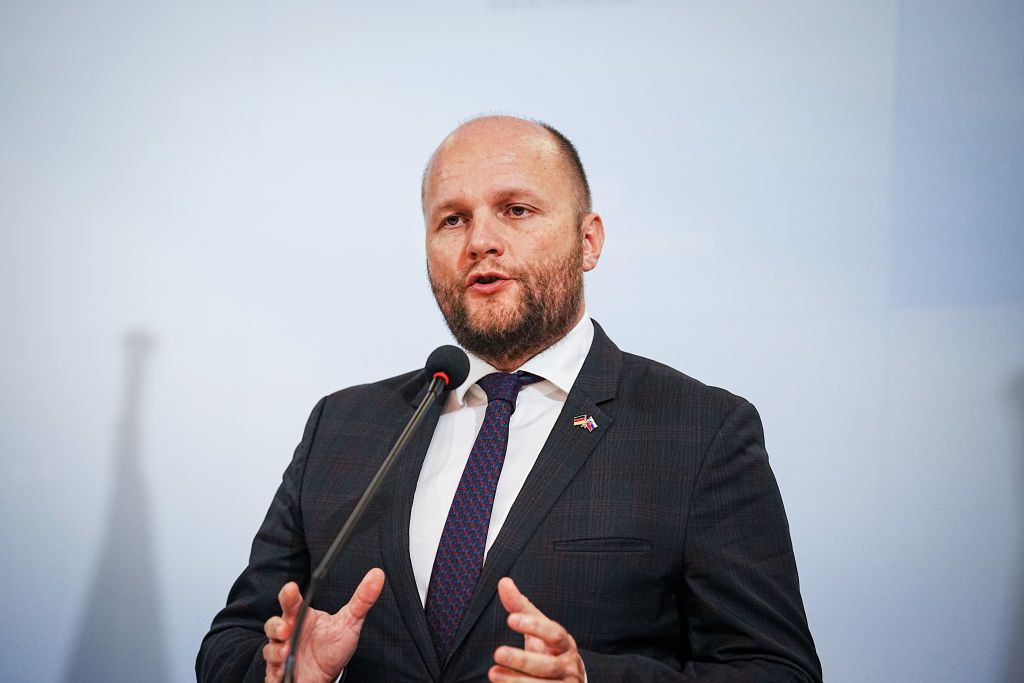
Editor’s note: This interview has been edited and condensed for clarity. When Russia launched its full-scale invasion of Ukraine, neighboring Slovakia, with its own experience of decades of Russian occupation in the 20th century, became one of the staunchest supporters of Ukraine. Under the guidance of then-Defense Minister Jaroslav
